Balakrishna Pisupati
The above is the theme for 2019 International Day for Biological Diversity.
Every year, 22 May is celebrated as the International Day for Biological Diversity with hundreds of activities around the world to draw attention to the need for protecting the biological resources and ensure the future of this Planet is secure for our children and grandchildren.
The focus on health this year is significant. Health is defined by the World Health Organization (WHO) as “a state of complete physical, mental and social well-being and not merely the absence of disease or infirmity". The status of health has important social, behavioral, economic and environmental determinants. Many aspects of human health are directly or indirectly dependent upon biodiversity, ecosystems and ecosystem functioning.
The State of Knowledge Review on Biodiversity and Health jointly published by the Convention on Biological Diversity (CBD) and the World Health Organization (WHO) detail the links between biodiversity, ecosystems, and health. According to the report, at a planetary scale, ecosystems and biodiversity play a critical role in determining the state of the Earth System, regulating its material and energy ?ows and its responses to abrupt and gradual change. At a more intimate level, the human microbiota – the symbiotic microbial communities present on our gut, skin, respiratory and urogenital tracts, contribute to our nutrition, can help regulate our immune system, and prevent infections.
Research and development of pharmaceuticals indicate that reliance on biodiversity for the discovery of new drugs continues to increase with new antibiotic-based research topping the list. The US Federal Drug Administration (USFDA) estimates that between 1981 and 2010, 75 % of antibacterial drugs developed are based on natural products. More than 500 antibiotics currently in use are derived from soil microorganisms.
Biodiversity-based research in medicine and physiology helped researchers win many Nobel Prizes, such as the one to Prof. Selman Waksman for his work on Streptomyces griseus to treat tuberculosis, to Prof. Tu Youyou in China for finding a cure for malaria – one of the most devastating tropical diseases – based on artemisinin extracted from sweet wormwood. More recently, Prof. Eric Kandel won the Nobel Prize for his work on sea slug-based research on memory storage.
It is estimated that the global trade in plants for medicinal purposes reaches a value of over 2.5 billion USD soon and is increasingly driven by industry demand. But, more than one-third of the population in many developing countries do not have access to modern healthcare and are dependent on traditional medical systems. Therefore, there is a need for countries to look at options to integrate health care systems that combine both modern and traditional medical practices.
As detailed in the CBD-WHO report, health and biodiversity strategies could be developed with the aim of ensuring that the biodiversity and health linkages are widely recognized, valued, and re?ected in national public health and biodiversity strategies, and in the programs, plans, and strategies of other relevant sectors, with the involvement of local communities. The implementation of such strategies could be a joint responsibility of ministries of health, environment, and other relevant ministries responsible for the implementation of environmental health programs and national biodiversity strategies and action plans.
Traditional Medicine
Though traditional medical practices and systems existed for centuries in countries like China and India that are based on biological resources, the recognition of these systems of medicine to provide health care for millions of local communities and ethnic minorities is still being assessed. The move by the World Health Organization to recognize traditional medicine as a part of the health practice is a welcome one.
China's interest in promoting traditional medicine has been long-standing and is more strongly supported by the recent initiatives such as the Belt and Road Initiative of Government of China that is aiming to create no less than 30 Centers for traditional Chinese medical practice by 2030. India is also pursuing its ambition to promote the traditional medical practice and created a full-fledged Ministry for Ayurveda, Yoga, and Naturopathy, Unani, Siddah, and Homeopathy (AYUSH) to support actions at various levels.
in health care practice are both critical and important to promote the agenda of the Convention on Biological Diversity (CBD). Health should form an important component of future work of the CBD with the options for an independent work program on biodiversity and health within the thematic work programs of the CBD.
Moving Forward
Citizens of most of the developing countries rely on biodiversity and traditional knowledge for their primary and secondary health care needs. Countries need to identify and promote actions for the conservation and sustainable use of biodiversity that provides for food, health and nutritional securities of people. Research has shown that managing ecosystems to reduce the risks of infectious diseases, including zoonotic and vector-borne diseases. For example, a city like Nairobi in Kenya that had limited incidence of malaria is now prone to malaria attacks due to the destruction of forests in and around the city.
Several of the diet-based diseases, including conditions such as obesity, can be well reduced and contained by the use of traditional food and promoting dietary diversity. Similarly, biodiversity-based interventions are beginning to prove better alternatives to the use of antibiotics that is fast triggering anti-microbial resistance.
Given this, countries need to develop strategies and policies to deal with conservation, sustainable use of biodiversity as well as promote traditional practices in support of securing local health care.
CBD COP 15
Increasing focus on health and biodiversity within the CBD need to be more action-oriented. With China hosting the CBD COP 15 meeting in 2020, the following could be an action agenda for consideration by China (as the incoming Presidency for COP) and all the 195 member states that are Parties to the CBD.
a. Agree on a time-bound, target-oriented work programme on health and biodiversity. This could be to further strengthen the current cross-cutting programme on health and biodiversity
b. Explore options for having a dedicated target on health and biodiversity within the upcoming new global biodiversity targets for 2021-2030.
c. Support the initiatives at global, national and local levels on mainstreaming health and biodiversity through a range of programmes, including dedicated funding for such programmes through the next cycle of replenishment of the Global Environment Facility (GEF).
d. Strengthen focus on the role and efficacy of traditional medicine and medical practices that support conservation and sustainable use of biodiversity and associated traditional knowledge.
e. Integrate food, nutrition, and health-related strategies as a part of strategies to strengthen the work programme on traditional knowledge and develop guidelines on the role of traditional knowledge, its contribution to healthcare systems and standardization, using the WHO guidelines as a base.
f. Develop a multi-institutional, multi-sectoral platform, with appropriate commitments, to focus on integrative health care practice, and
g. Use the programme of work on health and biodiversity as a key component of CBD’s work on biosafety and access and benefit sharing.
Let us hope that the CBD COP 15 will not only renew the focus on the need for integrative approaches to biodiversity, food, nutrition and health but also support actions related to integrative medicine and future human well-being.
Balakrishna Pisupati is the Chairperson of FLEDGE and is Senior Advisor on Knowledge Systems at Gokula Education Foundation, India.
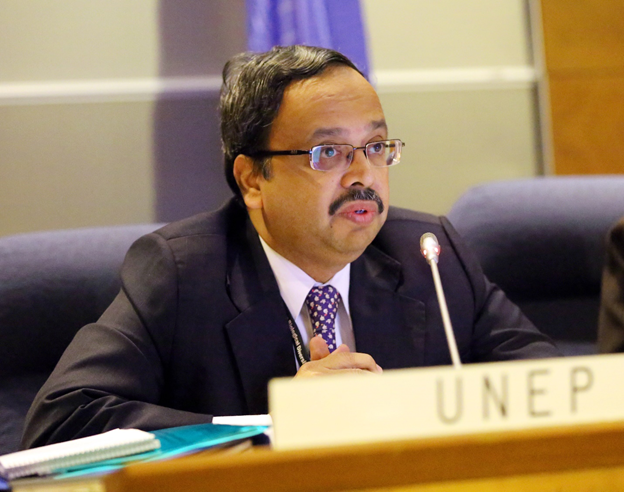
Balakrishna Pisupati, UNEP, speaking on behalf of Achim Steiner, UNEP Executive Director (Photo credit: IISD Reporting Services)
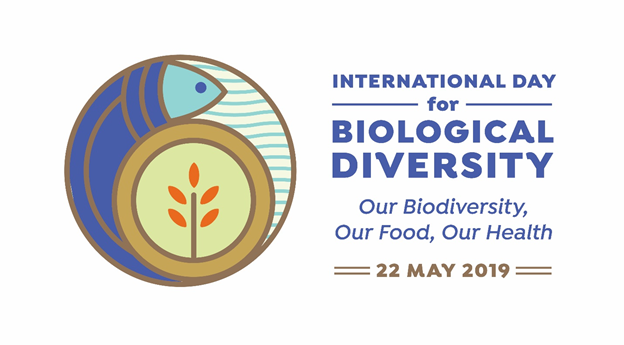
(Photo credit: UN CBD)
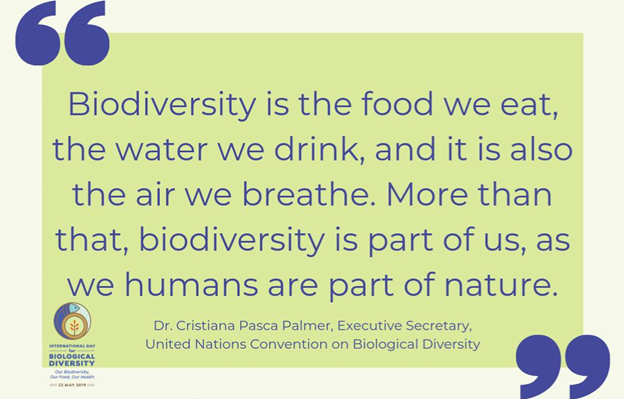
(Photo credit: IPBES)
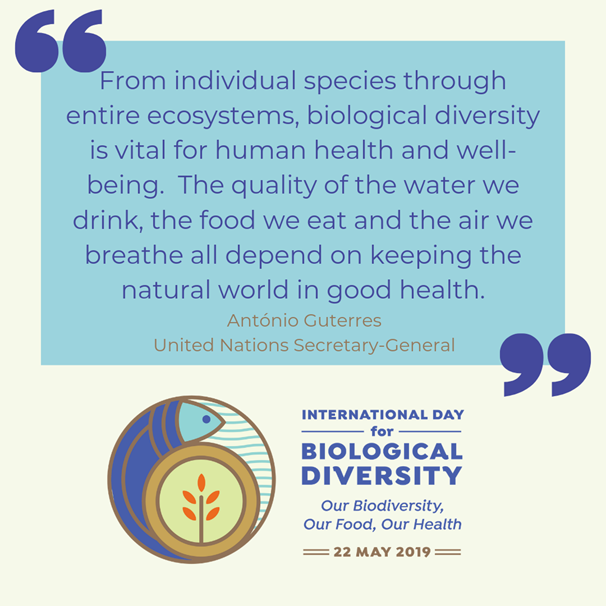
(Photo credit: UN CBD)
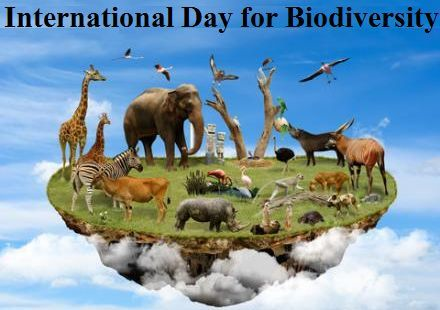
(Photo source: Internet)
English/Chinese bilingual article:
http://www.cbcgdf.org/NewsShow/4854/8677.html
Chinese translated by / Wang Yanqing
